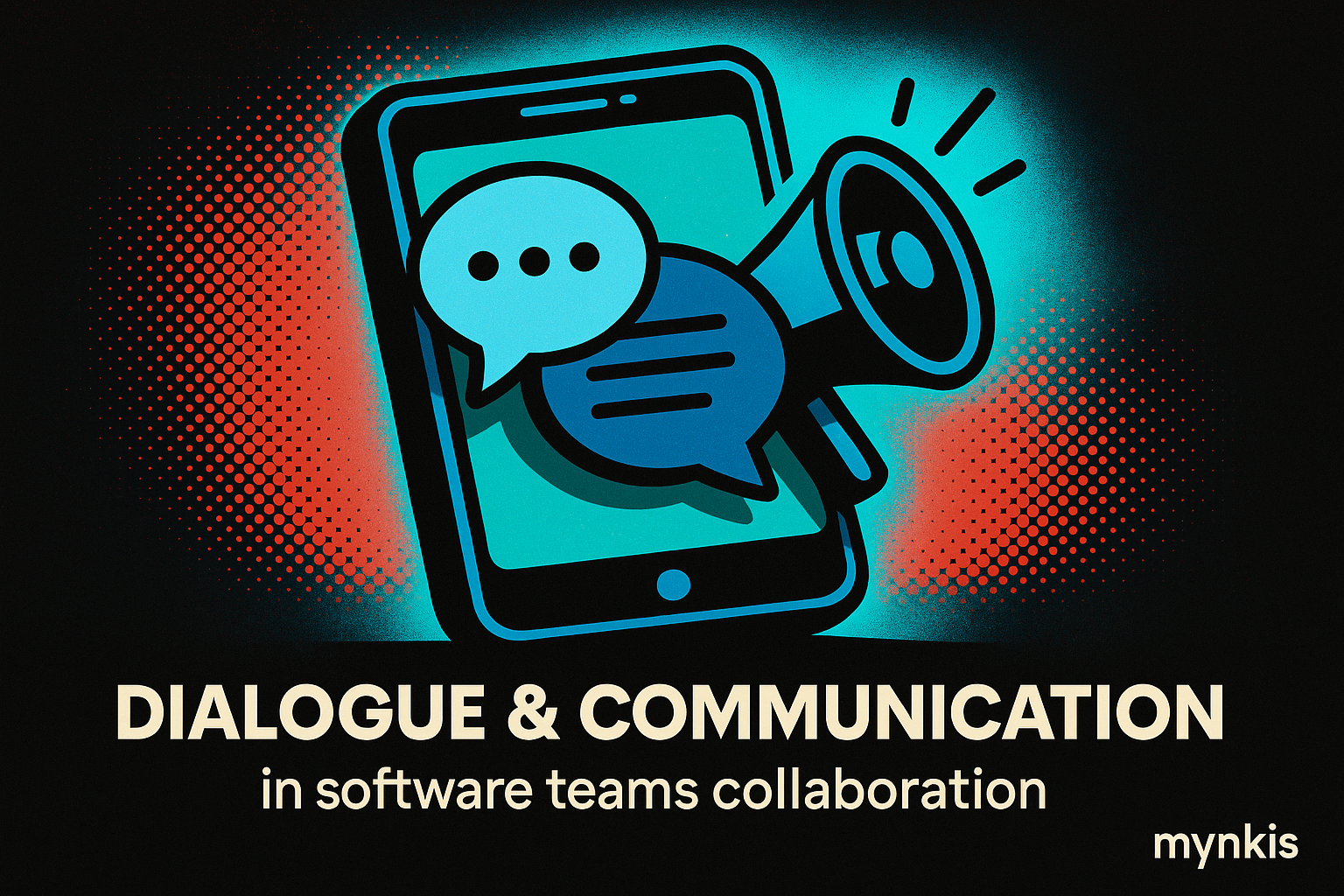Schedule a Demo
Effective communication in software development teams isn't just nice to have—it's critical for hitting project deadlines, fostering innovation, and delivering flawless custom software development. From my experience, disjointed communication can lead to wasted hours, misunderstandings, and rampant frustration. Let's dive into some strategies to keep your tech team's conversation flowing smoothly and elevate your project's success.
One of the first steps to improving team dialogue is establishing crystal clear roles and responsibilities. Yes, everyone should know what their piece of the puzzle looks like. From project managers to front-end developers, understanding who is supposed to do what—and by when—eliminates confusion right from the start. I've witnessed projects pivot smoothly when every team member is clear on their roles.
Agile methodologies aren't just for show. Stand-up meetings, when done right, keep everyone in the loop. Hold daily or weekly meetings where each team member quickly reports on what they did the previous day, what they will do today, and any roadblocks. These short, focused meetings can work wonders in enhancing team alignment and tackling issues before they become deal-breakers.
In the age of remote work, your arsenal of communication tools is as crucial as the code itself. Tools like Slack for real-time chats, Jira for project tracking, and Zoom for video meetings can supercharge communication. But it’s not just about having these tools; it's about training the team to use them effectively. For instance, ensure your team knows the difference between “Urgent” and “FYI” in Slack's notification settings.
A culture of open feedback is absolutely critical in tech teams. I've found that encouraging an environment where junior and senior developers alike feel comfortable voicing concerns significantly improves outcomes. Tools like anonymous surveys or feedback sessions can promote this candidness without fear of negative repercussions.
Effective dialogue involves more than just verbal communication. It extends into the shared space of documentation and code review. Encouraging thorough documentation helps newer developers get up to speed and provides a knowledge base for future projects. Similarly, regular code reviews promote better coding practices and facilitate a constant, constructive dialogue about improvement.
To break down departmental silos and enhance team synergy, consider cross-functional training sessions. These can range from informal weekly tech talks to structured courses. When a back-end developer understands a front-end challenge and vice versa, the obstacles become opportunities for improved dialogue and problem-solving.
Let’s be real—no team operates without some form of conflict. Yet how swiftly and fairly these are addressed significantly impacts morale and workflow. Set a precedent where issues are acknowledged openly and diffused respectfully. Maybe it's implementing mediation sessions or a conflict resolution workshop.
Especially relevant in a remote-working world, balancing asynchronous and synchronous communication is key. Asynchronous methods such as emails or message threads allow for thoughtful input on everyone's time frame. But synchronous meetings like real-time stand-ups or in-person code jams can invigorate the team and promote quicker decision-making processes.
Don’t overlook the role that celebration and team bonding play in enhancing communication. When teams celebrate their milestones, however small, it fosters a positive environment that translates into enhanced openness and better dialogue. Organize virtual or in-person team-building activities to nurture bonds beyond just work.
Leverage the diverse backgrounds within your team to boost communication and innovation. Teams with a mix of genders, cultural perspectives, and career paths enrich discussions and unlock unique approaches to solve complex problems.
Technology evolves rapidly, and software development teams need to keep pace. Whether it’s adopting a new workflow management tool or learning the latest programming language, staying tech-adaptive ensures your team's communication evolves just as quickly. Encourage ongoing learning sessions and beta testing within the team to stay ahead of the curve.
Transparency is not just about open doors in the modern workplace; it’s about how you manage projects. Let your team know about the highs, the lows, and everything in between. Transparent project management tool settings, shared roadmaps, and consistent progress updates give everyone the context they need for effective communication.
Mentorship shouldn't be a hit-or-miss element of your team's structure. Assigning mentors to less experienced developers or cross-department mentorship programs can imbue younger members with wisdom while opening communication channels. Furthermore, visible leadership roles ensure there are always leaders to look up to and dedicated individuals focused on team morale and communication strategy.
Remember that these strategies work in harmony, transforming the landscape of a software development team’s communication. Keeping this dialogue living and breathing is essential to fostering an innovative environment well-suited to the custom software development demands of today's market.
